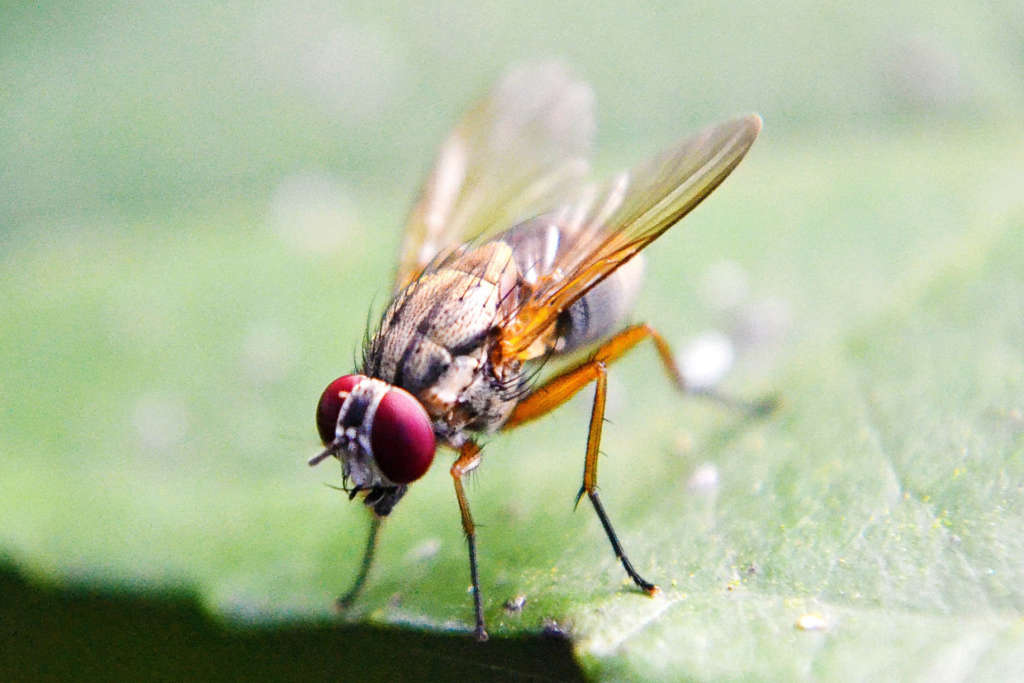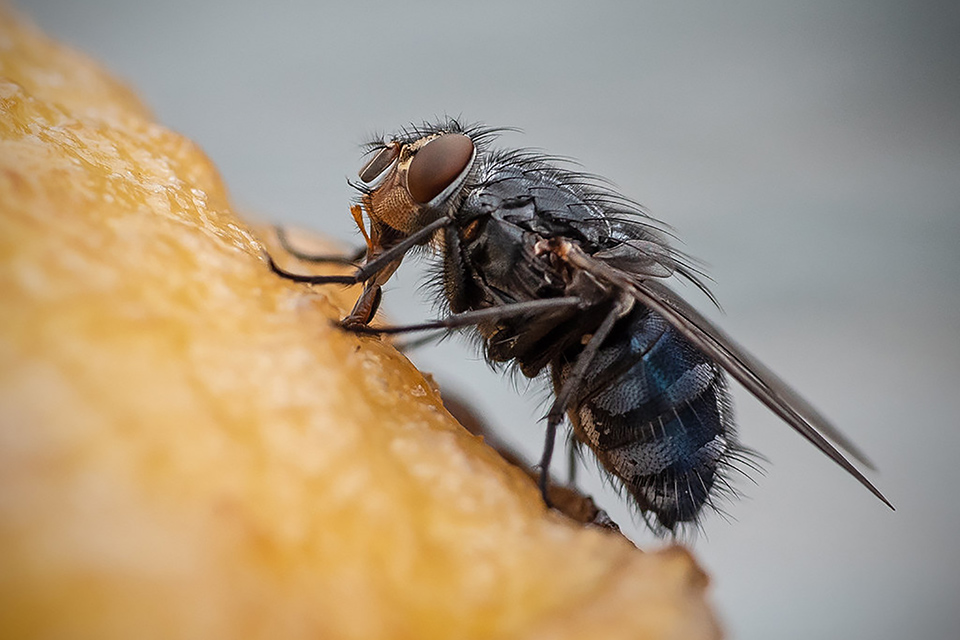Several species of flies and gnats have adapted to living in and around human structures. While generally a nuisance, some species of flies can transmit disease to humans and pets. In effect, it’s best not to simply ignore these pesky insects.
Biology & Life Cycle
More than 100,000 types of flies are known to exist, but the most known to Missourians is the common house fly. These flies lays eggs on wet, decaying organic matter such as garbage, animal manure or rotting plants. The eggs hatch into white maggots that feed on the waste. Next, the maggots change into an inactive pupal stage from which the adult flies later emerge. This life cycle is completed in about 14 days, depending on temperature.


Habitats in Missouri
Diet & The Search for Food
The smell of food from improperly maintained garbage cans, compost piles and pet manure attracts flies to areas around inhabited structures. And flies can squeeze through incredibly small spaces! Flies are often able to gain access through open doors and windows, gaps, cracks or crevices. A professional exterminator can help recognize and recommend ways to eliminate the weaknesses in a building’s structure.
Request a Free Pest Inspection
Request a Free Pest Inspection
Or call or text us at 636-297-1335
Or call or text us at 636-297-1335
Management & Eradication
Please visit the University of Missouri’s Flies webpage for more information about flies.

